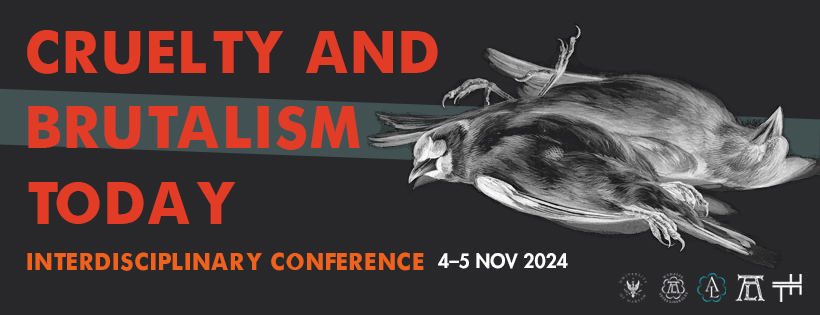Alicja Antosz
(University of Warsaw)
Abstract:
Literature is no joy but essential happiness. It does not please, instead it constitutes sense. Brings no peace, yet harmonizes all within itself. Its paradox consists of its extreme nature which makes one who accesses it touch sometimes the very opposite of the expected.
The greatest or the only form of being, according to Franz Kafka, being literature has nothing of a triumph unless the triumphant is literature itself. For it does not call with the sweetest of songs, but haunts a writer, demanding him to give up his voice in favor of a howl. Kafka’s thoughts concerning writing, in Diaries or Letters (to Felice, to Milena), give the idea of getting closer to literature, mastering one’s technique, achieving real happiness which grows accordingly to what seems to be a still deeper misery. For the happiness of writing demands enduring its impossibility of embodiment.
The speech will consist on question: what is or appears to be cruel in relation between literature and the writer. The main reference will be the case of Kafka’s interest in frontier of knowledge, being an almost ecstatically captured border between sane and insane. Fragments of intime pieces by Kafka will be accompanied by the context of ecstatic-epileptic boundaries in Paul Virilio’s “The Aesthetics of Disappearance” (2009).
Bio:
Alicja Antosz MA – I am a recent graduate at the faculty of “Artes Liberales”, University of Warsaw. I have obtained my master’s degree (2024) by defending the thesis entitled “Creation – the Need for Indiscretion. The Necessity of Revelation of Marcel Proust and Ludwik Hering”. My interests concern questions about the essence of literature, especially the idea of literature’s fragility, meaning it to be a subject exposed to be potentially harmed, faulted or sinned against by its author. Since 2022 I am in constant cooperation with Instytut Literacki “Kultura” (eng. ‘Kultura Literary Institute’) in Maisons-Laffitte, realizing grants (2024), traineeships (2022-2024) and projects which concern activity of the Institute, as well as my own scientific interests.
